Rolli Days, the great event that twice a year opens the doors of Genoa’s most beautiful and inaccessible palaces, will have a winter edition for the first time in 2024, which will moreover be dedicated to Fabrizio De Andrè. From January 19 to 21, 2024, the new edition of the event (which will be titled Sacred and Profane - Ballad for Genoa) will offer the extraordinary openings of Unesco palaces told through the words and notes of De Andrè.
Genoa, as is well known, is a city of sharp contrasts, today as well as at the time of the Aristocratic Republic, when a small group of oligarchs of unimaginable wealth ruled over a great mass of very poor individuals. To the monumental streets of the aristocracy, triumphant with palaces decorated with spectacular frescoes and on whose walls hung pictorial masterpieces unique in the world, leaned the humblest streets, in a coexistence that-if not peaceful-surely represented a unique and unrepeatable perspective on the city.
This contrast, reported in the chronicles of the sixteenth and seventeenth centuries, has remained as a feature of Genoa still in the letters written by Dickens, Mark Twain, Stendhal and many others who visited it during the nineteenth century, marveling at the decadence of some of the alleys, side by side with the gold and gleaming marble of the palaces and churches. There is then a dialogue between palaces and churches, between private and public spaces. The wonderful halls of the Palazzi dei Rolli are private and intended for the few, the monumental naves of the churches are public and offered to all eyes. Painters and sculptors - and patrons - are the same, to tell myths, allegories, secular subjects, but also stories of the saints, epiphanies of the divine and sacred subjects.
The first winter edition of Rolli Days, January 19-21, 2024, tries to tell these social, urban, and artistic contrasts, capable of creating an evocative encounter of the beautiful and the terrible, the sacred and the profane. The theme chosen for this extraordinary edition also allows one to be inspired by the exceptional poetic and musical vein of Fabrizio De Andrè, a passionate singer of the city. On the 25th anniversary of the death of the Genoese singer-songwriter, his songs and the short stories told in them will be a guide and inspiration to narrate sounds and characters of Genoa’s monumental historic center and its most significant spaces.
Alongside the ever-present guided tours by the Rolli Days science popularizers, there will be a large number of side events to remember the great singer-songwriter. Through De Andrè’s lyrics, the squares of the historic center will be brought to life to confirm once again how Rolli Days is a transversal event, which not only celebrates the past, but brings history into the present, placing the figurative art of frescoes and paintings alongside the performance art of music and theater. Visits to the Palazzi and sites open for Rolli Days will be bookable from early January.
This edition opens a year full of art and culture for Genoa that will culminate with the event IANUA - Genoa in the Middle Ages: the first event, the conference “The Empire of Genoa” at Palazzo Ducale, will in fact be held on the same days as Rolli Days. For all updates: https://www.visitgenoa.it/rollidays-online/
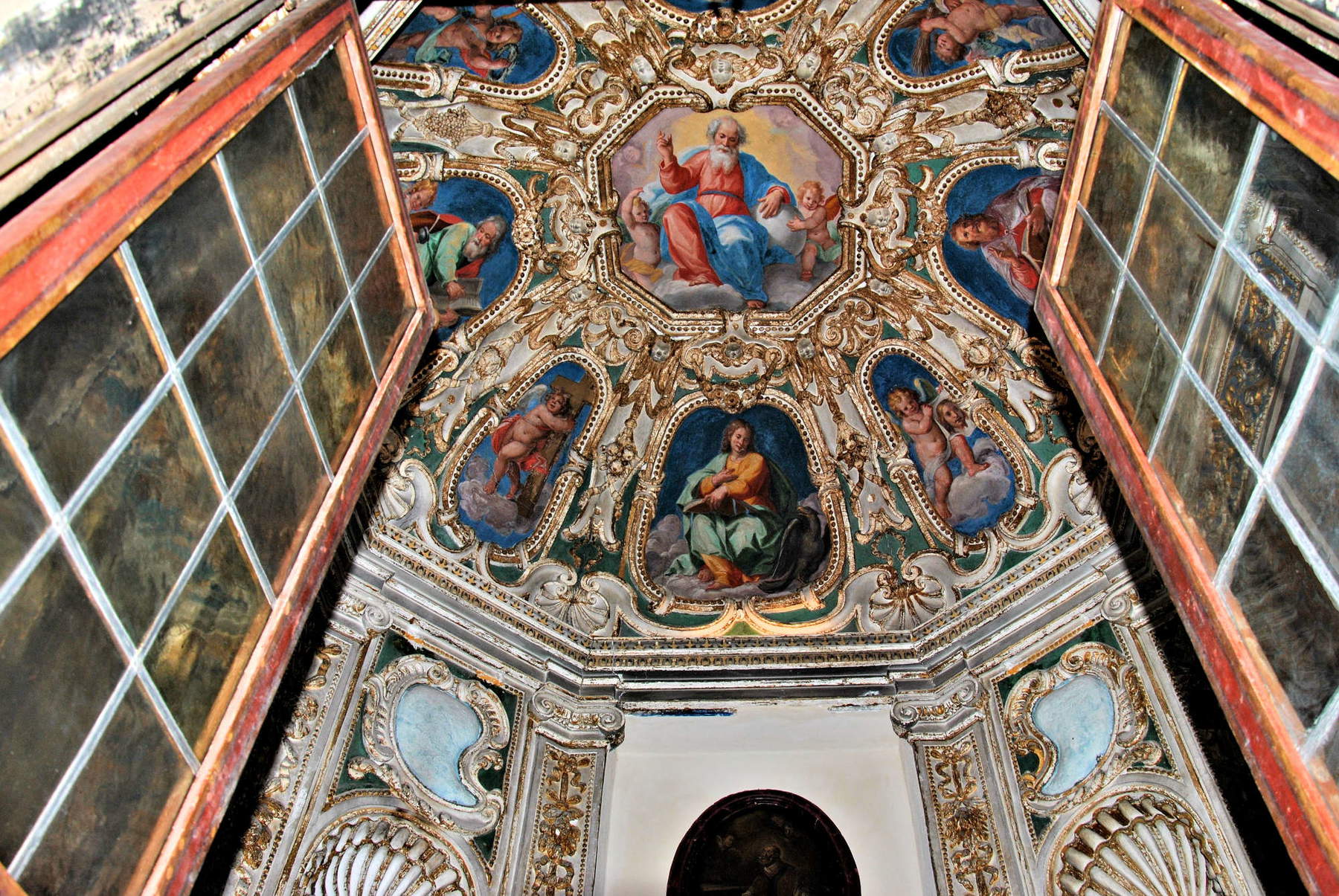
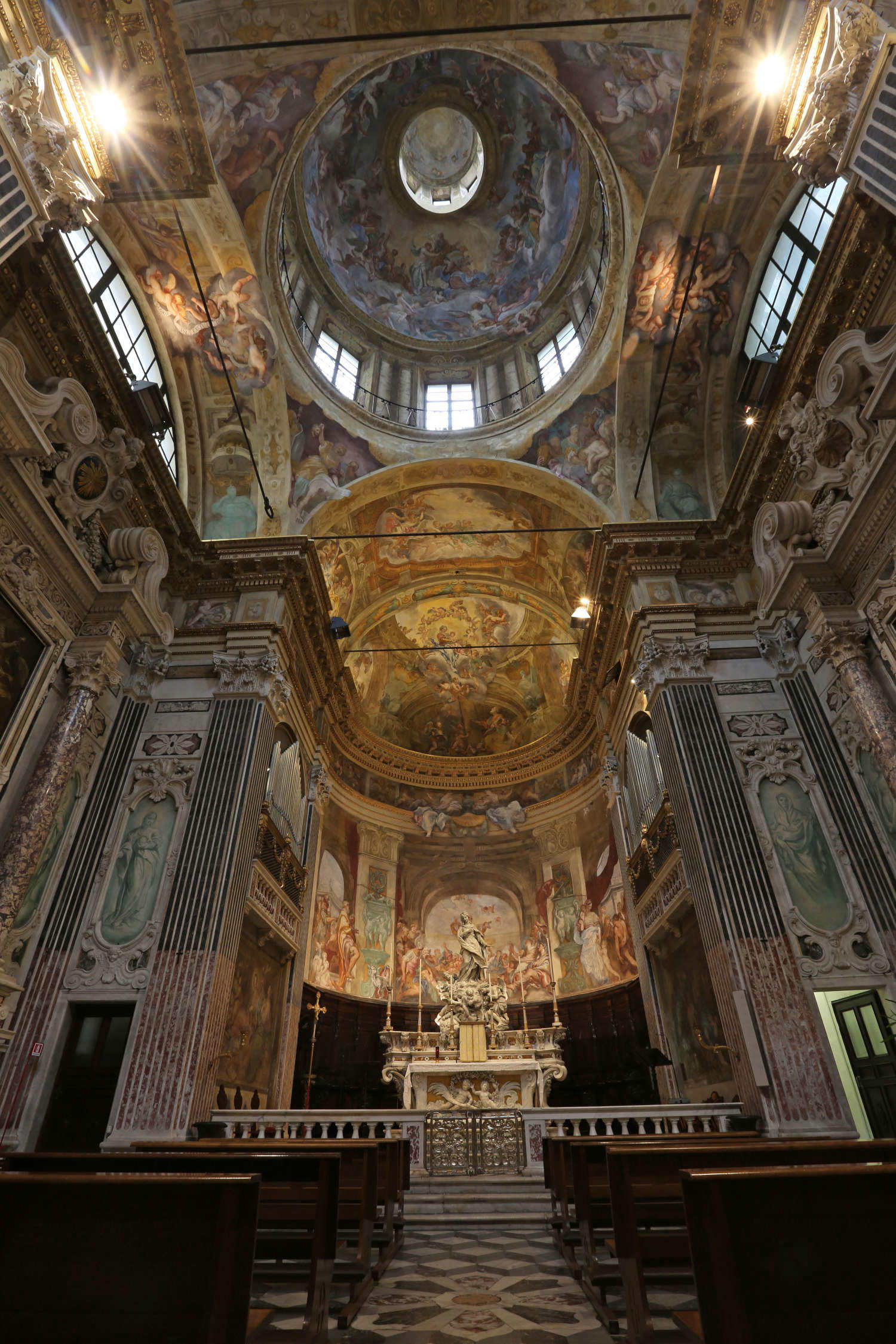
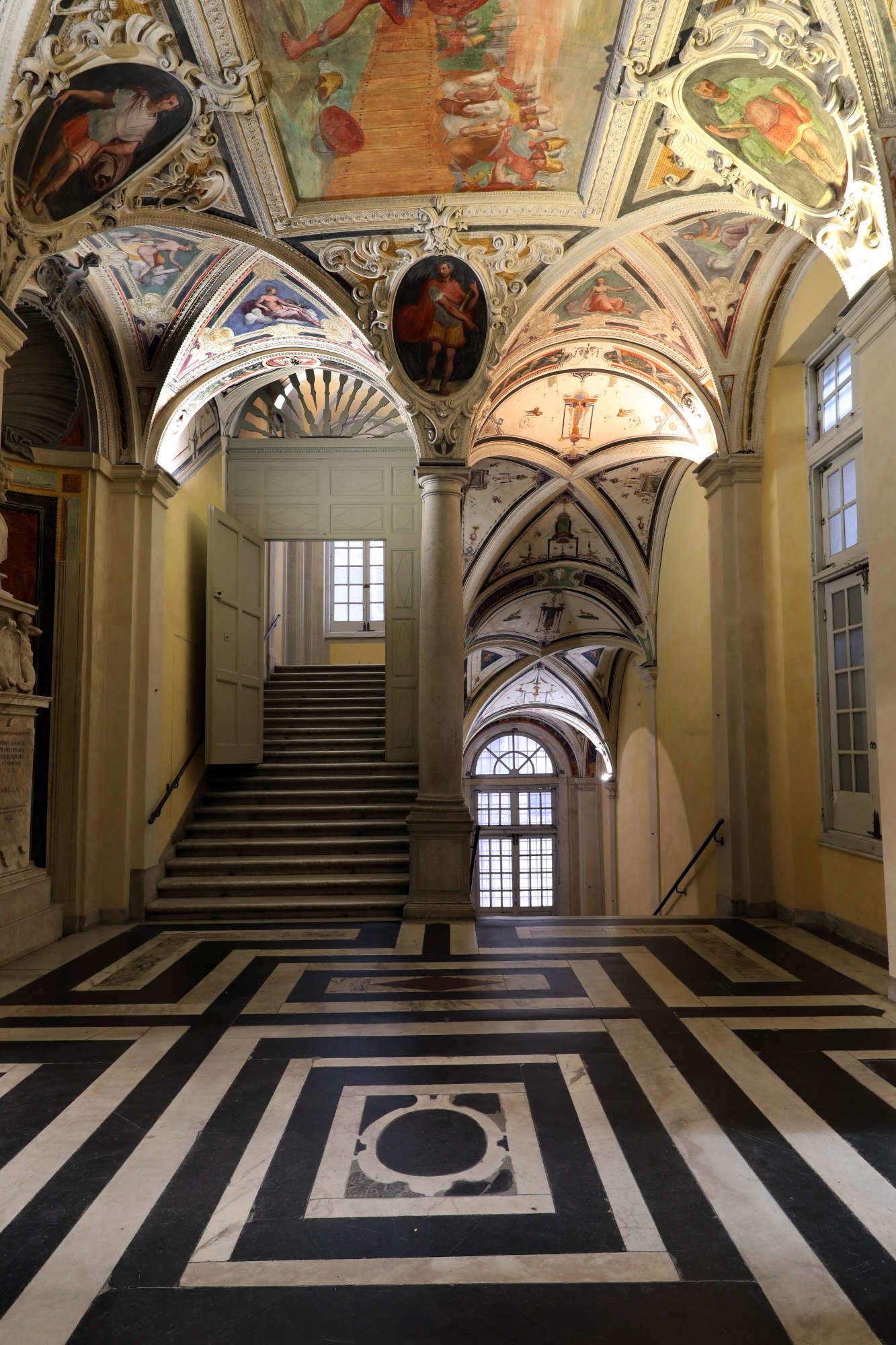
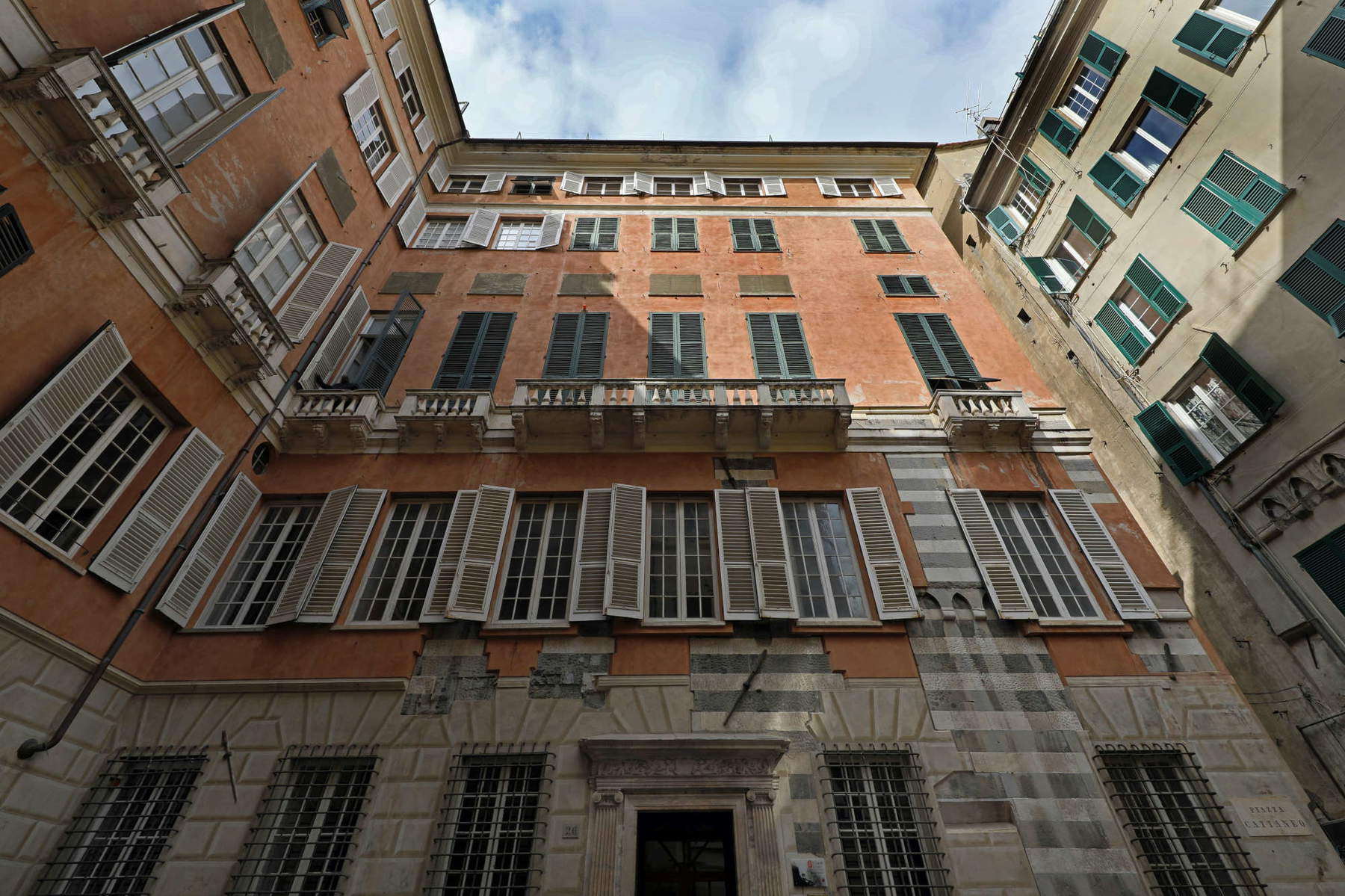
Palazzo Centurione Pitto, Piazza Fossatello 3 - Via del Campo (Vol. 1)
"Via del Campo, there is a little girl.
With dewy lips
Eyes gray as the street
Hiding flowers where she walks."
The Centurione palace, looming like the keel of a colossal ship stranded in the maze of medieval streets, is located at the very beginning of one of the main streets of Genoa between the fourteenth and seventeenth centuries, one of the routes that allowed the connection between the western gate of the city and its pulsating center. Via del Campo is also the title of one of Fabrizio De André’s best-known songs, which imagines the street and one of its palaces - unidentified - as a stage for a “dreamed” love story between a client and a very young prostitute, with its lights and shadows: an entirely profane story lived on the threshold of those very noble palaces, which became postribolo in their decadence.
Church of St. Luke - Ave Maria (The Good News)
"And you go away, Mary, among the other people
Who gather around your passing,
hedge of glances that do not hurt
In the season of being a mother."
The frescoes and decoration of the church of St. Luke have as their protagonist, along with the saint, precisely the figure of Mary, celebrated both as the Immaculate Conception, in the marble group created by Filippo Parodi, and as the mother of Christ, as the canvas depicting the Nativity by Grechetto tells us. Mary is also the protagonist of an entire album by Fabrizio De André, dedicated to The Good News of the Gospel and the dichotomies inherent in Christian doctrine, which have, according to the singer-songwriter, much to do with the secular world and reality.
Church of St. Mary Magdalene - The Song of Marinella (Volume III)
"This is your song Marinella
That you flew to heaven on a star
And like all the most beautiful things
You lived only one day, like roses."
Since time immemorial, this church has stood in the shadow of the great palaces of Strada Nuova, behind the richest and most precious seats of city power, in the middle of the neighborhood that most represents this ambiguity between the profanity of free love and the almost religious sacredness of frescoes and works of art. No song could tell this story better than La canzone di Marinella, dedicated to a modern, extremely earthly Magdalene who, thanks to Fabrizio De André’s words, takes on the aura of a heavenly woman.
Palazzo Lercari Parodi - Un giudice (Non al denaro non all’amore né al cielo)
"It was in the sleepless nights
Watching by the light of rancor."
The protagonist of the fresco in the hall on the main floor of the palace is Megollo Lercari, an illustrious ancestor of the owner family and well known in Genoese chronicles because of his terrible vengeful wrath: determined to reassert his honor and punish the enemies who had offended him, he reserved a terrible punishment for the many prisoners captured during his enterprise by having them cut off, according to a typically Byzantine custom, their noses and ears, which he then preserved, in brine, within special jars. A grudge that really reminds one in some ways of the Judge protagonist of one of the texts of the Spoon River Anthology, readapted and set to music by Fabrizio De André.
Palazzo Cattaneo Della Volta - The Old City (Songs)
"In the quarters where the sun of the good Lord
Does not give its rays."
Palazzo Cattaneo Della Volta is located in one of the oldest areas of the city center, situated between the market of San Giorgio and the Ripa: since the Middle Ages, these streets witnessed daily the passage of goods, distinguished guests, processions and ordinary people, who lived and experienced these crowded spaces. This is The Old City of which Fabrizio De André himself sings, in those neighborhoods where the streets are so narrow and the buildings so close together that sunlight hardly filters through: its rays cannot touch the stories and lives of those who inhabit these streets.
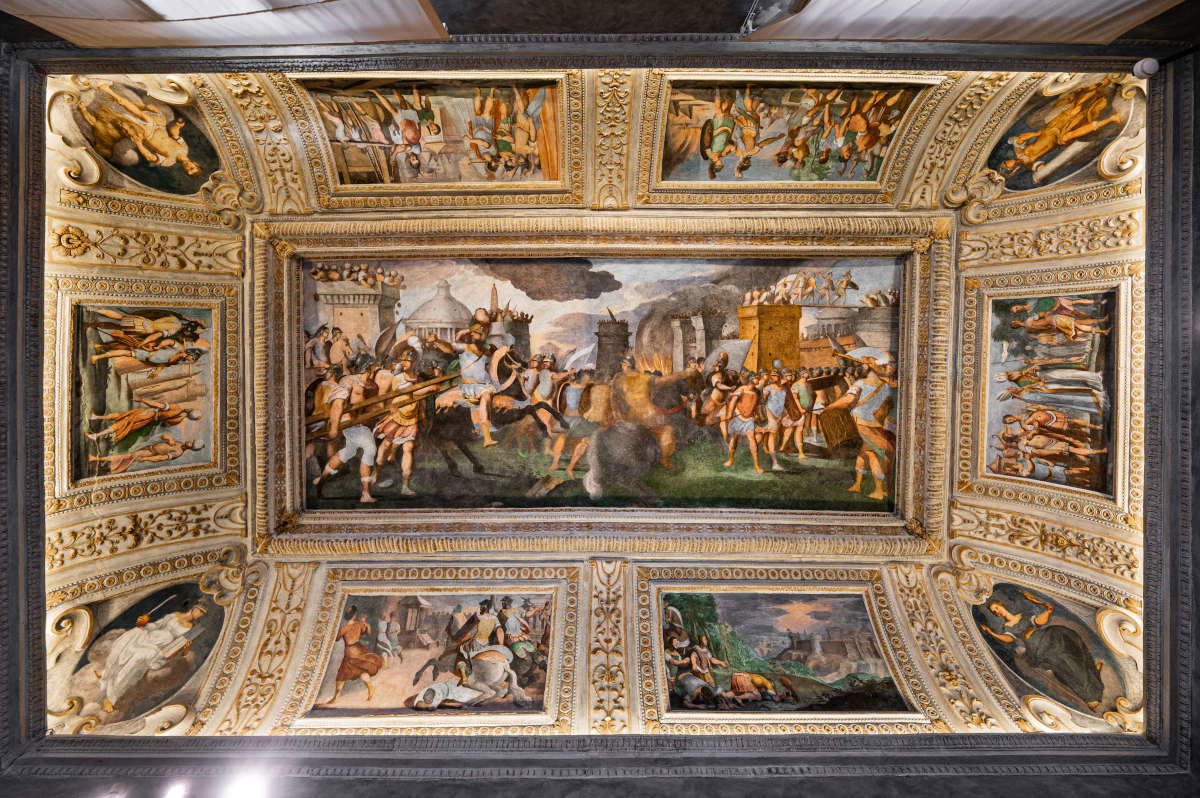 |
| Genoa, for the first time a winter edition of Rolli Days. It will be dedicated to De Andrè |
Warning: the translation into English of the original Italian article was created using automatic tools. We undertake to review all articles, but we do not guarantee the total absence of inaccuracies in the translation due to the program. You can find the original by clicking on the ITA button. If you find any mistake,please contact us.